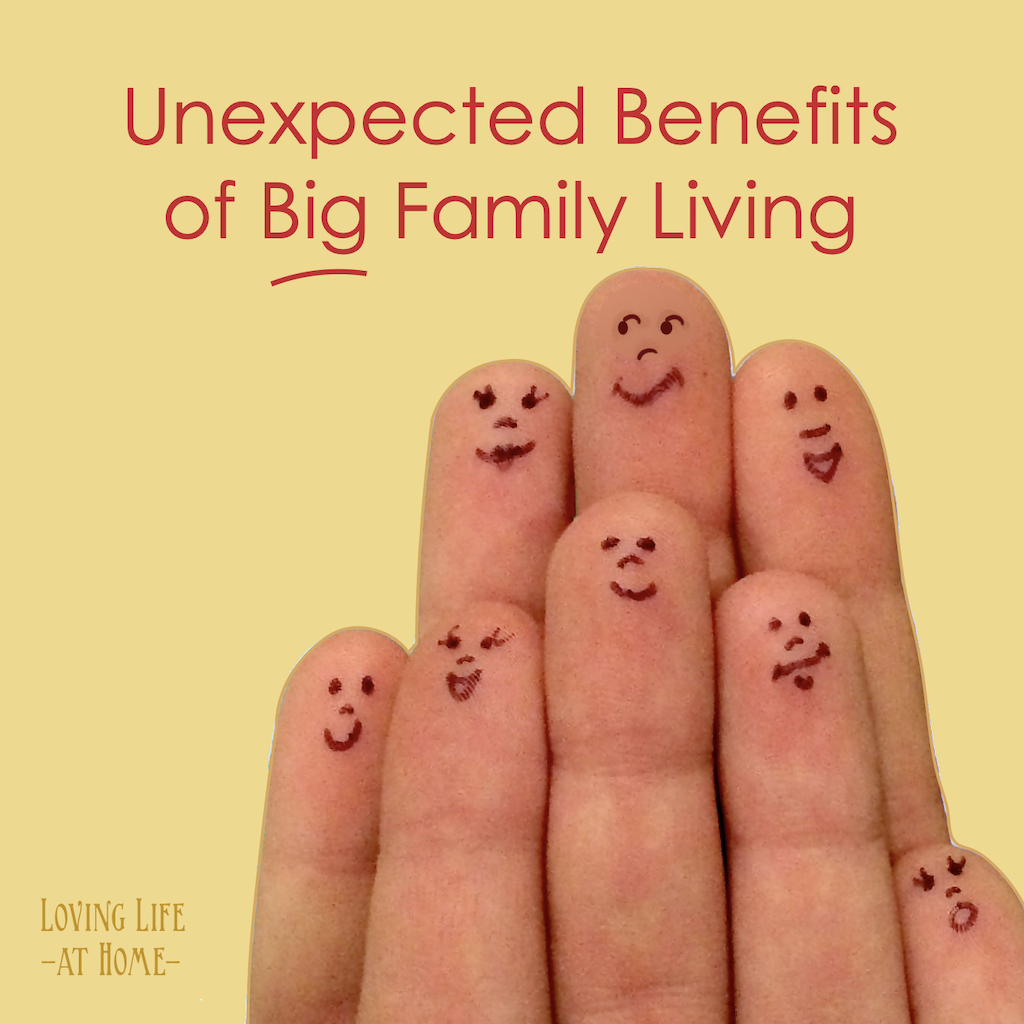EP 59: On Deciding If and When to Have Children

To be or not to be a parent… that is the question! Given the dark times in which we live, how are Christian couples to view the prospect of having children? What considerations should they take into account while deciding when–or whether–to start a family.
I hope you’ll listen in as we examine many of the most common objections couples give regarding the prospect of having children.
Show Notes
VERSES CITED:
- 1 Corinthians 12:14 – “…the body does not consist of one part, but of many.”
- Psalm 127:3-5 – “Behold, children are a gift of the LORD, the fruit of the womb is….”
- Psalm 128:3-4 – “Blessed is everyone who fears the LORD, who walks in His way….”
- Genesis 1:28 – “God blessed them and said to them, ‘Be fruitful and multiply….'”
- Deuteronomy 7:13 – “He will love you and bless you and multiply you.…”
- John 8:31 – “If you continue in My word, then you are truly My disciples.”
- 1 Cor. 10:31 – “… whatever you do, do all for the glory of God.”
- 2 Cor. 5:7 – “For we live by faith, not by sight.”
- 1 Peter 3:15-16 – “Always be prepared to give a defense to everyone who asks you….”
- Luke 10:27 – “Love the Lord your God with all your heart and with all your soul and…”
- Psalm 37:25, “…never seen the righteous forsaken or their children begging bread.”
- Phil. 4:19 – “God will supply all your needs according to His riches in glory in Christ….”
- Galatians 5:22 – “The Fruit of the Spirit is love, joy, peace, patience, kindness….”
- Philippians 1:6 – “He who began a good work in you will perfect it until….”
- James 1:5 – “But if any of you lacks wisdom, let him ask of God, who gives to all….”
- Philippians 4:13 – “I can do all things through Christ who strengthens me.”
- 1 Timothy 2:15 – “Women, however, will be saved through childbearing, if they….”
- Eph. 2:8-9 – “For by grace you have been saved through faith; and that not….”
- 1 Tim 5:13-14 -“… So I advise the younger widows to marry, have children, and ….”
- Matthew 5:13-15 – “You are the salt of the earth. But if the salt loses its savor….”
- Jeremiah 29:4-6 – “…have sons and daughters. Multiply there; do not decrease.”
- Exodus 1:11-12 – “…the more they were oppressed, the more they multiplied….”
- Deuteronomy 11:19 – “speaking of them when you sit in your house, when you walk…”
- Luke 23:29 – “…people will say, ‘Blessed are the barren women, the wombs that….’”
- Matthew 24:6 – “You will hear of wars and rumors of wars, but see to it that you….”
- Gen. 2:24-25 – “For this reason a man shall leave his father and his mother and….”
- Malachi 2:15 – “Has not the LORD made them one, having a portion of the Spirit….”
- Matthew 19:14 – “Let the little children come to me, and do not hinder them….”
- Romans 8:28 – “And we know that God causes all things to work together for good….”
RELATED LINKS:
- Ep 58: Best Wedding Gift You’ll Ever Get
- Ep 15: Is Having Babies a Waste of Time?
- Ep 8: Smart Reasons for Having Babies
- M is for Mama: Ep 61 – Is the Child-Free Movement Biblical
- US Fertility Rate Graph
- Do You Wanna Have a Baby? – an original music video 🙂
- A Quiverful Report – our interview with Al Jazeera
- Miriam’s Big American Adventure: Episode 3 – our interview with the BBC
- Demographic Winter – link to the sequel of the documentary we watched 15+ yrs ago)
- These Governments Pay Citizens to Have Babies
- When Strangers Count Our Kids & Ask Us If We’re Done
- Love Your Husband/ Love Yourself – my book

On Deciding When to Have Children
Full transcript for Episode 59
Hello, Friend.
Welcome to Episode 59 of Loving Life at Home. Last week, we talked about the best wedding gift a couple will ever receive. If you missed it, I hope you’ll go back and listen. I’ll put a link in the show notes to make it easy to find.
And the topic I want to talk about today is a gift very closely connected to that last one we discussed, and that is the gift of children.
There once was a time when societies viewed children as God views them—as a rich blessing, a heritage, a gift, a reward. They were seen as an integral, invaluable part of the family. Moreover, having babies was the natural progression after getting married, not a distant afterthought. A large family was considered an asset, not a liability.
But times have changed. We live in a society today that views children as an inconvenient burden or an annoying obstacle to self-fulfillment. A society that worships autonomy and views self-absorption as a good and noble trait. That passes out free abortions and vasectomies like candy, as was done at the Democratic National Convention last week. It is heartbreaking.
Trending Down
By the year 2020, fertility rates in the United States had dropped to the lowest we’ve seen in over 40 years. Although the news reports heralding that bleak statistic often speak of our nation’s fertility, what they are actually describing is our birthrate.
The problem is not so much that we are unable to conceive, but that, as a nation, we are choosing not to conceive (and terminating a large percentage of the pregnancies that do occur).
Consequently, for nearly every group of women of reproductive age, US birthrates have plummeted. This sharp decline has resulted in the fewest newborns our country has seen since the late 1970s, just one short decade before my husband and I conceived the first of our twelve children.
When we notice such trends, it’s always smart to ask why? Why aren’t people having more babies? Why aren’t children loved and valued and protected in our country, as they should be?
In past generations, getting married, settling down, and raising a family were considered markers of a successful transition into adulthood. Markers the vast majority of young people achieved by the time they turned thirty.
This is no longer the case.
These days, college-age kids rarely consider themselves ready for that kind of responsibility. They don’t want to rush into anything they might later regret. In their minds, the risks far outweigh the benefits.
And if they are unwilling to commit to marriage, which society now views as transient and disposable, how much less inclined are they to shoulder the lifelong attachment and responsibility of parenthood?
Unfortunately, even couples who overcome their risk-aversion sufficiently enough to tie the knot often pause at the prospect of starting their family.
I’ve told you before, but my husband and I married while we were both still students. He was 20; I was 22. He was juggling three jobs and attending night school to finish his bachelor’s degree. I was teaching calculus labs while working on my master’s in math. All the while, we lived in a cheap apartment complex populated by topless dancers, suspected drug dealers, and impoverished neighbors who were under constant threat of eviction.
The standard advice our parents and pre-marital counselors offered was to wait five years (minimum) before starting a family. First, we should get to know one another. Finish our degrees. Buy a house—or at least move to a safer, more child-friendly neighborhood.
All well-meaning recommendations, to be sure. But advice that, by the gracious providence of God, we immediately and happily ignored by getting pregnant two weeks into our honeymoon.
More children followed in quick succession. Consequently, I spent the first 25 years of our marriage either pregnant or nursing or both. And now, thirty-seven years, twelve children, and twenty-two grandchildren later (with more on the way), we feel supremely blessed.
It saddens me to see married couples postponing children indefinitely—or even willfully choosing to remain childless for life. So today, I’d like to challenge Christian couples, especially, to live counter-culturally by rejecting the bias against having children that is presently in vogue.
A Moral Duty?
Somebody recently asked me whether I thought Christians have a moral duty to have children. I don’t know that we can go that far. The call God has placed on your life will likely look different from mine, and vice versa. As 1 Corinthians 12:14 reminds us, “…the body does not consist of one part, but of many.”
But I can say with 100% confidence that Christians ARE morally obligated to live in agreement and in accordance with God’s WORD. As far as we are able, we should view everything we encounter in this world as God Himself views it. And Scripture makes it indisputably clear that God considers children a blessing:
- Psalm 127:3-5 – “Behold, children are a gift [or heritage] of the LORD, the fruit of the womb is a reward. Like arrows in the hand of a warrior, so are the children of one’s youth. Blessed is the man whose quiver is full of them; they will not be ashamed when they speak with their enemies in the gate.”
- Psalm 128:-4 – “Blessed is everyone who fears the LORD, who walks in His way. When you eat the fruit of the labor of your hands, you will be happy and it will go well for you. Your wife will be like a fruitful vine within your house, your children like olive plants around your table. Behold, for so shall a man who fears the LORD be blessed.”
- Genesis 1:28 – “God blessed them and said to them, “Be fruitful and multiply, and fill the earth and subdue it…”
- Deuteronomy 7:13 – “He will love you and bless you and multiply you. He will bless the fruit of your womb and the produce of your land…”
So, it is our Christian duty to regard children the same way God regards them: as a blessing rather than a burden. And they are a blessing!
My Goals in Discussing This Topic
Now, I’m not trying to convince anybody to have a houseful of kids they don’t want. Raising children is hard work. It’s rewarding work, to be sure. But it is also challenging. And if the only reason somebody undertakes that task is because I’ve convinced her that’s the thing to do, then that motivation will be insufficient to keep her going when the going gets rough.
That’s why my goal, instead, is three-fold:
Study God’s Word
First, I want to convince Christians to study what God says in His Word about this matter for themselves—as Jesus points out in John 8:31, “If you continue in My word, then you are truly My disciples.”
So I encourage you to study what God’s Word says on this topic and make certain you’re viewing the prospect of having children the same way God views that prospect and are bringing your thoughts and opinions into line with what He says is right and true and desirable instead of just parroting what the world says about marriage and motherhood and children.
I know for a fact the Holy Spirit can do a far better job of convicting and convincing you that any 20-minute podcast could ever hope to accomplish!Live a Yielded Life
Second, I want to encourage Christians to live a yielded life. What your yielded life looks like may (and very likely will) be different than what my yielded life looks like, but it should be our goal as believers to bring every facet of our existence under the Lordship of Christ.
That includes our thoughts and beliefs, the way we steward our time and money, our work and leisure activities, how we use and develop the gifts and talents with which we’ve been entrusted, and yes, even how we steward our fertility and family size.
Our goal should be to glorify God (as 1 Cor. 10:31 commands us to do) and to walk by faith, not by sight (as we’re told in 2 Cor. 5:7), in each and every one of these areas.Be Willing to Explain
Then, my third goal is to always be ready and willing to explain to those who ask why we’ve made the choices we’ve made, just as the Bible instructs us to do. There we read:
“But in your hearts sanctify Christ as Lord. Always be prepared to give a defense to everyone who asks you the reason for the hope that is in you. But respond with gentleness and respect, keeping a clear conscience, so that those who slander you may be put to shame by your good behavior in Christ.” – 1 Peter 3:15-16… This verse is the reason I’ve written so many books and blog posts and recorded podcast episodes on this and related topics (I’ll link a few of those in today’s show notes in case you’re interested in reading more).
It’s why I try to give thoughtful responses to readers or listeners who follow up with even more questions.
It’s why I am patient with strangers who notice our family size and ask probing questions, including questions that some folks might consider rude.
And it explains why our family has agreed to interviews with Al Jazeera, the BBC, 20/20 and the like. We are more than happy to share the faith and the hope that has undergirded our family planning decisions and to explain how clearly and repeatedly God has confirmed to us that children are a huge blessing – in far more ways than we originally imagined.
So we tell them: As Christians, our goal is to love and serve God with everything we’ve got: with all our heart and soul and mind and strength. (Luke 10:27) For us, fertility is a natural extension of that concept.
If we believe that God can be trusted with our health and our home and our finances and our eternal security — and we do! — then why not trust Him with our family size, too? By leaving the family planning to God, we merely acknowledge what the Bible has made clear from the beginning: It is God who opens and closes the womb.
Okay now, with those three purposes in mind – a commitment to studying God’s Word, a desire to live a yielded life, and a willingness to gently and respectfully defend our faith – let’s examine some of the reasons modern-day couples commonly give for actively avoiding parenthood.
Common Objections: Personal
“We can’t afford children”
The reluctance some couples feel about having children may stem from a desire to maintain control. They want to make sure the timing is perfect: Land a high-paying job, buy a roomy house, pay off school loans, reach the point where they can provide everything the world claims is necessary for the health, happiness, and well-being of their offspring.
They want all their ducks in a row before they’ll even consider trying for a baby. And until that day comes, they’ll tell you, “We can’t afford children.” They don’t feel like they have enough money and/or time to start a family.
Which begs the question: How much money does it take to raise a child to adulthood? I’ve seen headlines that estimate the cost to be anywhere from to 237K to 1.1M per child. It’s no wonder such a price tag would scare away a lot of folks.
Of course, if you’re willing to buy things second hand, and to forgo dressing your children in designer clothes or sending them to ivy league schools, and if you can turn a deaf ear to the steady stream of marketing ads trying to convince you to buy things you don’t really need, then you can reduce that bottom line dramatically.
Yet David wrote in Psalm 37:25,
“I was young and now I am old, yet I have never seen the righteous forsaken or their children begging bread.”
That’s so true. The Bible promises that “God will supply all your needs according to His riches in glory in Christ Jesus.” Phil. 4:19 and we’d do well to remember that fact and live like we believe it.
That’s not to say you won’t need to moderate your lifestyle. You may not be able to maintain same standard of living after children as you had before, or to afford as large a house or as nice a car or as swanky a vacation.
Several years ago, my husband had a partner who. who told him, “You know, if only you’d stopped at two children, you could’ve afforded to retire early with money in the bank and a 2-million dollar mansion, like me.” [That may not be a verbatim quote – I only heard it second hand – but that was the unmistakably clear message.]
However – by God’s grace – my husband and I both instinctively knew all those material trappings would not and could not ever bring us the deep satisfaction shepherding a dozen living souls has provided. And I wouldn’t trade the fruit of our choices for a world of big bank accounts and fancy houses.
I saw an interview in which somebody recently asked Tucker Carlson what advice he’d give to young people these days, and—without so much as a pause to deliberate—his answer was to get married and have children ASAP. He claimed that was the bravest and most creative thing a person could do.
He also stressed the fact that money doesn’t satisfy. I don’t have the exact quote written down, but he elaborated by saying something along the lines of, I’ve known a lot of rich people in my life, and they’ve all been miserable. So don’t chase wealth. Invest in things that really matter.
To which I say a hearty Amen!
“I don’t have enough patience!”
If some couples put off having children because of finances, others opt out because they’re scared: They’re afraid of making mistakes. Afraid they’ll fail. Afraid they’ll be bad parents. Afraid they don’t have what it takes.
What do we know about raising children? They ask rhetorically. Or, even more common, they’ll claim “I don’t have enough patience.”
Well, good news! Raising children can be a very maturing & sanctifying, if you’re willing to embrace that aspect of parenting and allow God to use the process to mold you into a better… I started to say a better version of yourself, but that’s not exactly right. His goal instead is to conform us to the image of His beloved son, Jesus Christ,
I’m not saying that having a baby magically and immediately transforms you into a selfless saint, but God definitely can and does use your children to root things like stubborn pride and selfishness out of your heart and to replace them with a humble concern for the needs of others and the soul-nourishing fruit of His Spirit: love, joy, peace, patience, kindness, goodness, faithfulness, gentleness, and self-control. (Galatians 5:22)
The verse I quoted a minute ago, about God supplying all our needs? We need to remember, that isn’t just talking about physical needs like food and clothing, but about spiritual needs as well, like wisdom and understanding and endurance. What’s more, we can be confident that “He who began a good work in you will perfect it until the day of Christ Jesus,” as we read in Philippians 1:6. And that includes the good work He started when He made us parents.
“I’m Afraid of Pregnancy and Childbirth”
Another personal objection I sometimes hear is from women who’ve had extremely difficult pregnancies and/or hard deliveries. Or their mothers had complications, and they don’t want to follow in the same footsteps. They dread pregnancy and childbirth. Maybe they don’t relish the idea of daily puking up their guts for nine months solid –I’ve had friends who were still throwing up in the delivery room. Or perhaps they’re concerned they literally won’t survive giving birth.
To be honest, I don’t have an easy answer for that one. We live in a fallen world, and all these things need to be taken into prayerful consideration. As I’ve said before, I have easy pregnancies, smooth deliveries, healthy babies, stable emotions, physical strength, a stable marriage – the list goes on and on, so it made perfect sense for me to have babies, and lots of them. But not every woman is blessed with those same circumstances.
Fortunately, God promises wisdom to those who ask, not just for day-to-day living, but for making tough decisions like the one just described: James 1:5 tells us,
“But if any of you lacks wisdom, let him ask of God, who gives to all generously & w/o reproach, and it will be given to him.”
So pray for wisdom and discernment, then also pray for strength in carrying out that decision, as you’ll likely hear opposing viewpoints regardless what you decide. So determine ahead of time you will proclaim with Paul, “I can do all things through Christ who strengthens me.” Philippians 4:13
Let’s consider 1 Timothy 2:15…
I’ve sometimes heard 1 Timothy 2:15 used as an argument for having babies despite health risks. It reads:
“Women, however, will be saved through childbearing, if they continue in faith, love, and holiness, with self-control.” But does it really apply to this discussion?
What does “will be saved through childbearing even mean?
eternal salvation?
Well, I don’t believe it is talking about the eternal salvation of our souls. Ephesians 2:8-9 makes this clear: “For by grace you have been saved through faith; and that not of yourselves, it is the gift of God; not as a result of works, so that no one may boast.”
And if we tried to interpret 1 Tim 2:15 to mean that women are saved by means of childbearing, we would be contradicting the clear teaching of scripture that salvation is by grace alone through faith alone in Christ alone….
physical preservation?
So maybe when it says “women will be saved through childbearing” it means we will be preserved through childbirth? (Indeed, that’s how the most recent NASB version renders this verse.
Yet I know of many pious women have died while giving birth… In fact, before the advent of modern medicine (and especially antibiotics), one in five women died giving birth or shortly thereafter. So while that understanding may be generally true, it doesn’t seem to capture the meaning of this passage completely.
christological reference?
I’ve read some commentaries that suggest 1 Tim 2:15 refers to Christ, who through childbirth became flesh to die for our sin. But, while that is certainly how history played out, I think you really have to read between the lines to get that meaning out of this verse.
more meaningful priorities?
After giving birth twelve times over and dedicating so much time to raising those dozen children to adulthood, I wonder if perhaps Paul was suggesting that childbearing could save women from a misspent life?
Certainly, the responsibility of raising so many children prevented my engaging in much of the idle gossip Paul cautions against a couple of chapters later. In 1 Tim 5:13-14, he warns,
“At the same time they will also learn to be idle, going from house to house and being not only idle, but also gossips and busybodies, discussing things they should not mention. So I advise the younger widows to marry, have children, and manage their households, denying the adversary occasion for slander.”
Did you notice that last part? Paul provides an antidote for the idle, gossip-driven, busybody life he just described: His solution was to marry, have kids, and invest your energy into keeping your own household running smoothly.
And I suspect his earlier comment on women’s “being saved through childbirth” may have been rooted in this same line of reasoning.
Whew! I don’t even know HOW we got off on that tangent, but there it is. In the meantime, let’s get back to the common objections couples give for postponing or avoiding children…
Common Objections: Interpersonal
My husband sent me an article a few weeks back about a French writer by the name of Corrine Maier who recently published a book called Me, First. [I won’t bother linking that one in the show notes, because it is definitely not a book I’d recommend.] But in it, the author promotes selfishness as a virtue and warns women not to get married or have children, because quote: “Motherhood is a trap. Marriage is a bad deal.”
Of course, my husband suspected that headline would really get my dander up when he sent it to me – and he was right! Thankfully, I don’t think this particular title has been translated into English yet, but I did some digging and found out she wrote another book back in 2007 that became an international best seller. I think the English title of that one was No Kids – and in it she presented what she considered 40 good reasons not to have children. Her list included things like (paraphrased):
“Kids will ruin your sex life.”
Ha! That one made my husband and me both laugh out loud, because it is so demonstrably untrue. You can bet I’ve had a LOT more sex since becoming a mother than I ever did before!
“Traveling with kids is a nightmare.”
A challenge? Yes. But nightmare? That hasn’t been our experience, either. We love traveling with our kids. It is so much more fun to explore new places and try new things when we get to enjoy it together as a family.
“Kids will inevitably disappoint you. “
Well, if you are expecting your children to be perfect, then maybe this is true. But if you approach parenting with the understanding that everyone of us, mom and dad included, have a sin nature that needs to be brought into subjection to the Lord Jesus Christ, then you won’t be surprised or shocked or scandalized when kids act in accordance with that fallen nature, but will view it as an opportunity to train them and lovingly point them to Jesus.
Another reason this author gave for not having children is that kids are expensive (I already addressed that topic earlier), and that…
“Kids will cause you to lose contact with all your friends.”
Which is not necessarily true. Besides, having kids also leads to the formation of lots of wonderful new friendships – both with the kids themselves, and with their friends and their friends’ parents.
One thing this author said that I do think is valid and deserves discussion is the idea that…
“Kids won’t satisfy your deepest longings.”
I love all my children dearly, and I do get a sense of satisfaction from knowing and raising and spending time with them. But ultimately, the source of my satisfaction is Christ. It is rooted wholly and completely in Him and in doing what He has called me to do, which of course includes mothering.
I don’t think it’s fair for parents to expect their children to satisfy all the longings of their hearts. That is neither wise nor necessary.
You can still have a close, mutually encouraging relationship with each and every one of your children without depending on them to meet your deepest emotional needs. So the fact that they can’t bring complete satisfaction should not be a deterrent to having children, since a prudent parent will never expect them to.
Common Objections: Philosophical
Then, I think there is a whole class of common objections to bringing children into the world that I would call philosophical in nature.
One such objection I’ve heard is that having babies is a distraction from the more important work of sharing the gospel.
I did an entire podcast on this particular argument (and I’ll link it in the show notes rather than trying to rehash it here. Just look for Episode 15: Is Having Babies a Waste of Time?), but suffice it to say here that I strongly disagree with that idea.
“The world too wicked.”
Other couples will cite as their reason for remaining childless the idea that “The world too wicked.”
Yet, shouldn’t that be all the more reason for Christians to have babies? God calls us to be salt and light in our communities: Light dispels darkness, and salt acts as a natural preservative – it slows process of spoiling.
In the Sermon on the Mount, Jesus said it this way:
“You are the salt of the earth. But if the salt loses its savor, how can it be made salty again? It is no longer good for anything, except to be thrown out and trampled by men. You are the light of the world. A city on a hill cannot be hidden, do people light a lamp and put it under a basket. Instead, they set it on a stand, and it gives light to everyone in the house. Matthew 5:13-15
Note that, even during their captivity, God told the exiles who were carried away from Jerusalem to Babylon:
“Build houses and settle down. Plant gardens and eat their produce. Take wives and have sons and daughters. Take wives for your sons and give your daughters in marriage, so that they too may have sons and daughters. Multiply there; do not decrease.” Jeremiah 29:4-6
Babylon was a wicked empire, yet God did not view that as a reason His people should stop being fruitful and multiplying.
The same is true of Egypt. We know that God also greatly multiplied Israelites in during the years they were slaves to Pharaoh…
“So the Egyptians appointed taskmasters over the Israelites to oppress them with forced labor… But the more they were oppressed, the more they multiplied and flourished; so the Egyptians came to dread the Israelites.” Exodus 1:11-12
So if God’s answer for His people in the pagan cultures of Egypt and Babylon was to get married and have lots of children and busy themselves teaching those children about Him ( “…when you sit in your house, when you walk along the way, when you lie down, when you rise up….” Deuteronomy 11:19), why do we think His counsel would be any different for Christians in our culture today?
“The world is already overpopulated.”
Another objection I often hear is that there are already too many people on the planet to be sustainable. The world is overpopulated.
Some couples are genuinely concerned about global warming and climate change, they don’t want to be a drain on the environment, and are trying to do everything they can to reduce their carbon footprint—even at the cost of never having children.
I talked a little about those arguments with Abbie Halberstadt on an episode of her podcast, M is for Mama, which I’ll link in the show notes, but even at 8.1 billion, if we assigned 500 square feet of living space apiece to every man, woman, and child, we could fit the entire world population into an area the size of the state of Montana. That’s 500 sq ft per person, not per family (interestingly, our entire family – my husband, myself, and the 10 children at the time — lived in a 500 sq ft bachelor barracks for 4 months during a stateside deployment my husband served with the Army Medical Reserves in 2006).
We saw a great documentary several years ago called Demographic Winter that did a fabulous job of addressing these fallacies of overpopulation. I’ll see if I can look it up and link it in today’s show notes.
Yet lots of countries find themselves in big trouble economically because birth rates have dropped below replacement levels. That leaves them with an Aging population, and not enough young workers to support them.
Declining birth rates cause so many problems, in fact, that some countries, as I mentioned earlier, are now paying their citizens to procreate.
“The world is far too dangerous.”
Another common argument I’ve heard against starting a family is that the world has grown too dangerous to bring more children into it.
Some couples can’t imagine bringing a child into a world filled with so much violence and suffering. They don’t want their little one to face the realities of global pandemics, death, destruction, political unrest, economic hardship, terrorism.
Again, we need wisdom for navigating these issues.Luke 23:29 warns us,
“Look, the days are coming when people will say, 'Blessed are the barren women, the wombs that never bore, and breasts that never nursed!'”
[I think it is interesting to note that this verse assigns that pronouncement to people… people will say barren wombs are blessed. It doesn’t say God agrees with that sentiment.
In fact, in addition to the clear instructions God gave His children who were living in captivity in Babylon and Egypt – the ones I just read – we also have Matthew 24:6 ,
“You will hear of wars and rumors of wars, but see to it that you are not alarmed. Such things must happen, but the end is still to come.”
Over and over again, we are told not to worry about tomorrow. And that command should impacts and inform every facet of our lives, including family size. You will never go wrong trusting God to decide.
Rarely are decisions completely one dimensional though. Undoubtedly, lots of different considerations help shape how a couple approaches the question of when and whether to have children.
“Our lives are too busy for children.”
One couple’s decision to postpone or forgo children may be rooted in more selfish reasons. They want to have fun, enjoy their freedom, mark a few things off their bucket list first, and they know intuitively that having kids would bring an abrupt end to the carefree, autonomous, indulgent life they’re presently living.
“We already have all the kids we can handle.”
Another couple may have already had a couple of kids and aren’t sure they can handle any more. They view children as something to enjoy in moderation. One or two is fine. Four or five is scary. Any more than that is certifiably insane – or abysmally ignorant. I can’t even begin to count the number of times some stranger has counted my kids then asked me, “Don’t you know what causes that?”
Yet all these ideas stand in stark contrast to the Word of God, which tells us unequivocally that children are a blessing and a heritage from Him.
So why aren’t believers having more babies? Why aren’t Christian counselors encouraging couples to “be fruitful and multiply?” Why aren’t churches proclaiming the message that children are a blessing from God and greatly to be desired?
Since when do Christians let the world dictate how they think about anything? Christians should be far more concerned with what God says about a subject than what social media, the general populace, psychological “experts,” Hollywood elites, or political pundits think of it.
And when it comes to the topic of children, we see that God’s word is unashamedly pro-child. Fertility is portrayed as a gift and a blessing – which it is. Not as something to be despised, squandered, and short-circuited.
Sex = Oneness + Fruitfulness
And that brings up another important point, which is the fact the only reason the question of when and whether to have babies is even a discussion is that, thanks to birth control and abortion, our society has almost completely divorced sex from fruitfulness.
But God’s design and intent is for the two to go together.
- “For this reason a man shall leave his father and his mother and be joined to his wife; and they shall become one flesh. And the man and his wife were both naked and were not ashamed.” Genesis 2:24-25
- “Has not the LORD made them one, having a portion of the Spirit? And why one? Because He seeks godly offspring. So guard yourselves in your spirit and do not break faith with the wife of your youth.” Malachi 2:15
“The two shall be one flesh”, not only symbolically in the physical union of the sex act itself, but also literally in the fruit it produces. Half of his DNA and half of hers combine to create an entirely new person!
Sex as God designed it to be enjoyed — by a husband and wife fully committed to one another and open to receiving the blessing of children — is a potent thing. (as we discussed last week in Episode 58 (which I’ll put in the show notes, in case you missed it)
When any of those elements are missing (marriage, faithfulness, procreative potential), sex is stripped of some of its power and meaning, and what is left is a distorted shadow of what was meant to be.
Jesus told his disciples, “Let the little children come to me, and do not hinder them, for the kingdom of heaven belongs to such as these” (Matthew 19:4). And I want my heart to reflect that same love for little ones and openness to receive them.
God Can Be Trusted
Plus, as a Christian, I believe God is sovereign. He opens and closes the womb. And He can be trusted to work all things together – even family size and spacing – for our good and His glory (Romans 8:28).
I could talk about all the myriad and unexpected blessings my husband and I have personally experienced after giving God full control of our family planning and joyfully accepting all the children He’s seen fit to send us.
I could cite scientific studies, as well, that indicate having children – lots of them – is corelated to good health and longevity. (I cited – and linked — several of these studies in Episode 8 on Smart Reasons for Having Babies, which I’ll link in the show notes)
But personal anecdotes, logical arguments, scientific studies, and demographic downturns are insufficient, in and of themselves, to provide the grace needed to persist when the going gets tough.
Parenting is hard work. It’s rewarding work, to be sure, but difficult, nonetheless. Couples need more than intellectual or economic arguments for having kids. They need a strong conviction, an abiding sense of purpose, a spiritual calling. They need a deep understanding that the Word of God is perfect and unchanging.
A commitment to adopting and maintaining a scriptural view toward children is a refusal to exchange the marvelous, natural function of our fertility for something unnatural, artificial, and purposefully designed to thwart God’s intended plan.
Becoming a parent, whether by birth or adoption, is an exercise of faith. Raising children is a way of glorifying God with the gifts He has given us, of serving Him through serving others, and of making disciples of Christ.
For me and my husband, trusting God to determine the size of our family has been both a leap of faith and an act of worship as we’ve joyfully cooperated with His marvelous design. It has meant taking His yoke upon us but finding it easy and light and filled with more joy than we could have ever imagined.
That has been our experience, and I hope it will be yours, as well.





